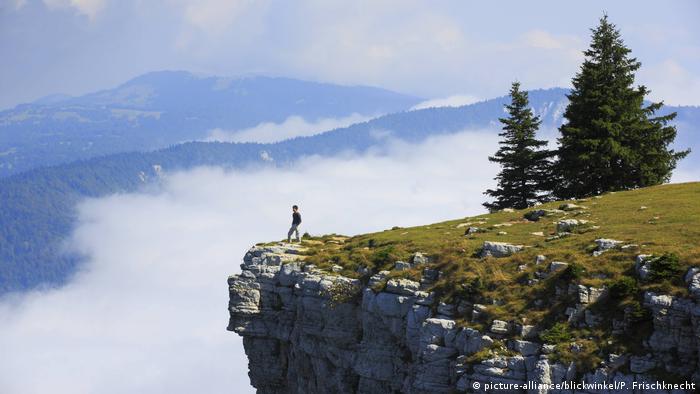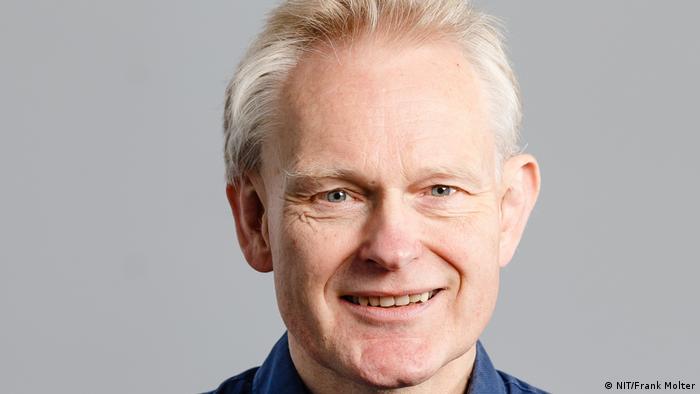Climate change has arrived in the heads. But on the holiday flight or cruise want to be without however, almost no one. A CO2 tax could change that, says tourism expert Wolfgang Günther.

DW: Europe has the second record heat summer in a row behind. We spend soon all of our holiday now only in the cooler forests of Scandinavia, while the beaches to be orphaned in southern Europe?
Wolfgang Günther: no, because first of all, there are no precise predictions about what will bring the next summer. People know from experience that the weather up North can be sometimes fickle and rainy and in the Mediterranean area, most likely stable warm weather. There are also many other factors in the travel decisions play into this. Ranging from stories of friends and Acquaintances, and through articles in the Newspapers to own travel experiences and expectations. The weather is only one factor of many. This is important to know, to overestimate this factor. Booked a holiday destination not because of the weather to be expected in the next summer or Winter, but because of the image, what are the tourists of the Destination in mind.
But there are vacation destinations that are threatened by climate change is essential?
The question is, how far into the future we want to look is actually. So far, we have, of course, can determine changes in climate, but travel behaviour has changed, if at all, only marginally. That is not what we expect for the next 20 years is much different. There are of course exceptions, especially if you look at the local level, and individual sectors of tourism. We assume that extreme weather events are on the increase. The meeting is already some tourism infrastructure sensitive. You only have to think of a national Park, the Hiking tours offered as a tourist product especially. Now the rain comes strong and washes out the Hiking trails. The Parks and the tourist service providers, there have revenues, you must take a lot of money for repairs in the Hand, and the customer is upset. This happens already today and we expect that it will be more in the future.
And how it looks on the coasts?
We expect by the end of the century the sea level will rise by about a Meter – and these are conservative estimates. This means that the beaches will change. Tourist infrastructure needs to be better secured, or tourism regions need to consider whether you can get in such a rise in sea level of your infrastructure so ever yet and want to.
Just come back from the holiday. Have you taken in the preparation of the environmental impact of your trip?
Yes, I’m trying to a consequence. We have made a hut Hiking tour in Norway. Last year we were in Sweden, and have been able to book a good train service. This year, it didn’t work unfortunately, we had to drive with the car. But we loaded the car with five people, and the grandma with Packed [laughs]. Flying is not for us as the family in question, and the car, we don’t take only when really necessary.

Wolfgang Günther is a biologist and expert for sustainable travel
So, you are sure to be a role model for many people. A majority of Germans takes climate change very seriously. Nevertheless, most of them are, if it’s about holiday travel, not willing to restrict.
Well, if I’m a model, I do not know. But the phenomenon you are addressing, we have actually studied. Around 60 percent of Germans say they want sustainable travel – but don’t do it usually but. However, this is not necessarily the fact that sustainability was unimportant, but as mentioned above the fact that for diereise decision, many factors are decisive. The issue of sustainability is one of the many. But no trip to the environment or to improve the working conditions for people in the tourism industry. The Intention is to discover rather New, relaxing, beautiful experiences. And for many, the trip should be also sustainable. But the sum of holidaymakers balances. For most of the trips are not then so in a sustainable way.
You talk a lot from the “sustainable travel”. What does that mean in concrete terms?
The question according to this scale, it can be different answer. It depends on what is right for someone individually is important. Currently, the CO2 balance is very much in the foreground, and since the amount Of power the lion and departure. Then also mobility, activity and accommodation on-site, of course, play a role, although in comparison to the arrival and departure quite small. Around I drive with the car or I go Hiking? I sleep in Five-star Hotel or a small cottage? I go to the amusement Park or in nature? These are all things that play in the ecological footprint with the clean. With regard to the social impact, it starts at the time of booking. Do I book on a chain or I would like to encourage local providers? I buy then locally, regional organic products, or don’t care? But the sustainable travel there is not as a registered trademark with a fixed content, but it always depends on which aspects of the sustainability for providers and travelers in the foreground.
And what would have to happen now, so that we can all travel more sustainable?
If we calculate the sustainability of the CO2 balance, we are in the discussions we have already. We would have to levy a CO2 tax, CO2 emissions more expensive to make. As a result, energy-intensive travel would be more expensive and thus less attractive. Also in the aspect of supply and traceability of sustainable travel is still room for improvement. You could promote these offers and incentives for climate-friendly modernisation, to create. At the same time, consumers need to make clear what criteria do you have for your travel and more time in Research, to invest, to find more sustainable Travel options. And you should appeal to the businesses on the aspect of sustainability, so that the note that the topic is important to the customer.
Wolfgang Günther is a biologist. He is the head of the section on “sustainability in tourism”, as well as an authorized signatory of the Institute for tourism and recreational research in Northern Europe (NIT) in Kiel. Below you can find further information on the impact of climate change on tourism as well as tips for more sustainable travel.
The Interview was conducted by Felix schlag wine.